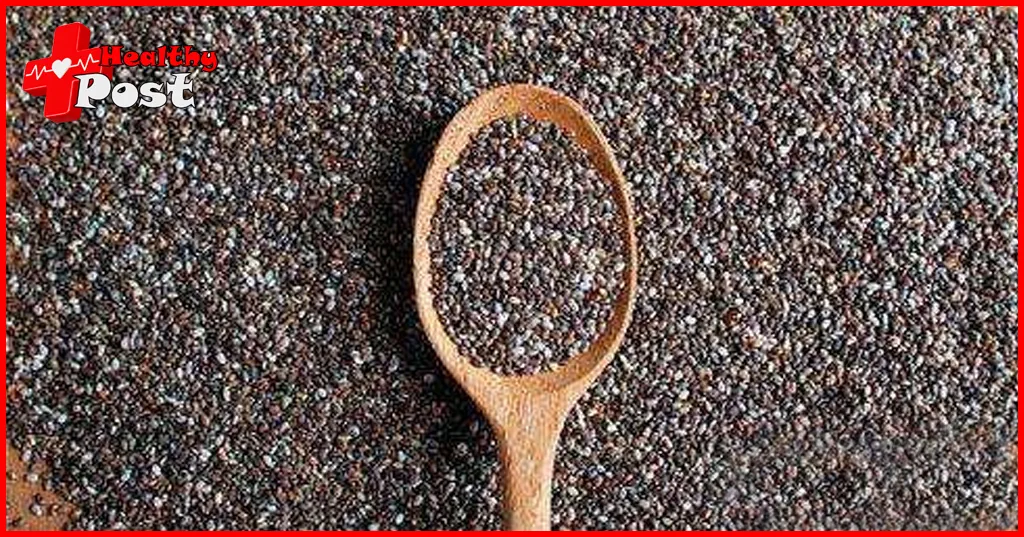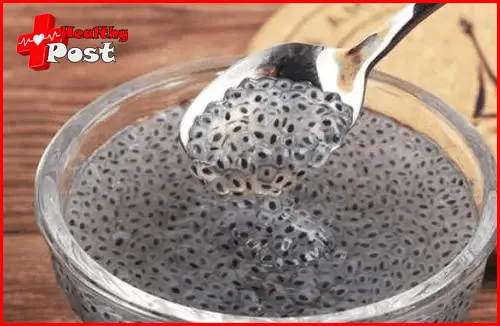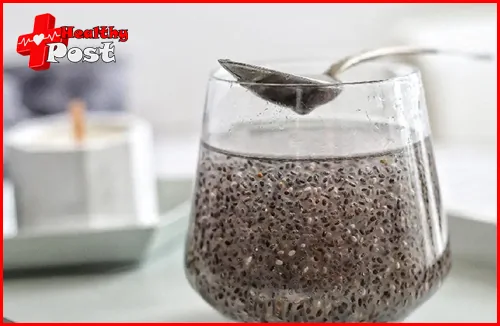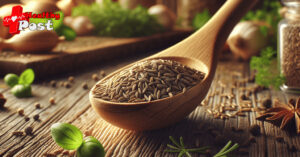
Chia seeds Benefits and side effects
As an ACE-certified personal fitness trainer, nutritionist, and health manager , I can provide you with more valuable nutrition and health knowledge, health product selection, and healthy weight loss advice. Chia seeds have become the new favorite in the health food industry in the past 20 years.
It was once one of the staple foods of the Aztecs in South America thousands of years ago . It is rich in various nutrients and is therefore regarded as a superfood. Ithas the characteristics of swelling after absorbing water (up to 15 times the weight of the seeds) and high fiber content, which can slow down the conversion of starch into sugar in the stomach and intestines, and is regarded as a holy product for weight loss.
In various cases, these are believed to have potential benefits in controlling diabetes, dyslipidemia, hypertension, anti-inflammation, antioxidant, anti-coagulation, constipation, anti-depression, anti-anxiety, analgesia, vision and immune improvement, but is there any medical research to support this?

What are chia seeds?
What are the scientifically proven benefits of chia seeds ?
1. Chia seeds improve inflammation
2. Chia seeds are beneficial for blood pressure regulation
3. Chia seeds are rich in omega-3 fatty acids
4. Chia seeds are rich in calcium and can improve bone health
5. Chia seeds improve weight loss results
6. Chia seeds are rich in various nutrients
7. Chia seeds are low in calories and rich in fiber
8. Chia seeds stabilize blood sugar after meals and increase satiety
9. Chia seeds are rich in plant antioxidants
10. Chia seeds are rich in protein
11. Chia seeds can lower bad cholesterol and triglycerides
Do chia seeds have side effects? Safety precautions (7 taboos)
Can chia seeds be eaten dry? Do they have to be soaked in water?
How to soak it
What are chia seeds?
These are seeds derived from the Lamiaceae family , originating from Central and South America (northern Mexico and Guatemala). The word Chia comes from the ancient Aztec word Chian, which means rich in oil (not the widely circulated magical power).
These have been used as food, folk medicine, cosmetics, and as part of socio-religious rituals since 1500 BC.
The seeds vary in color from black, gray, black spots to white, are oval in shape, and range in size from 1 mm to 2 mm.
The nutritional composition of it is mainly 31% fat, 26% carbohydrates, 18% dietary fiber and 16% gluten-free protein . The special thing is that the oil contains 68% alpha- linolenic acid ( a type of omega 3 ), which is much higher than other seeds. Note 1
In addition, it is also a source of multiple vitamins (thiamine, riboflavin, niacin, folic acid , vitamin C and vitamin A) and minerals (calcium, phosphorus, potassium and magnesium).
Due to the above characteristics, it have become one of the most popular crops in the feed, food, medicine, nutrition and other industries in recent years.
What are the scientifically proven benefits ?
1. improve inflammation
C-reactive protein ( C-reactive protein ) is a non-specific biomarker (originally discovered in 1930 by Tillet and Francis investigating serum pneumococcal infection) that increases rapidly following acute inflammatory events including most tissue damage, infection, cardiovascular disease, autoimmune disease, and malignancy.
A single-blind crossover study (12 weeks, in 20 subjects with well-controlled type 2 diabetes) showed that chia seeds (37 grams per day) reduced the inflammatory marker hs-CRP by 40 % compared with a control group that consumed wheat bran.
*Conclusion: Chia intake has a positive effect on reducing the inflammatory marker hs-CRP, but due to the small sample size, more research is still needed to confirm it.
2. Chia seeds are beneficial for blood pressure regulation
Blood pressure is the pressure within the main arterial system of the human body, measured in millimeters of mercury. It is usually divided into systolic pressure and diastolic pressure.
Systolic pressure is the maximum blood pressure when the ventricles contract, and diastolic pressure is the minimum pressure recorded before the next contraction.
Our bodies can regulate blood pressure as needed. When high blood pressure occurs without a specific cause, it is generally called “primary” hypertension, which is currently the most common type of high blood pressure.
A randomized, double-blind, placebo-controlled study (12 weeks, subjects in 29 patients with stage 1 hypertension) showed that chia flour (daily dose of 35 g) has the effect of assisting in regulating blood pressure in both treated and untreated hypertensive patients . Note 1
*Conclusion: It may have a positive effect on blood pressure regulation, but due to the small sample size, more large-scale trials are needed to confirm this.

3. Chia seeds are rich in omega-3 fatty acids
It contain 25% to 40% oil, of which 60% is composed of omega-3 fatty acids (α-linolenic acid (ALA)) and 20% is omega-6 fatty acids (Linoleic acid (LA)).
Omega-3 can regulate a variety of molecular processes and exert multiple effects, including: anti-inflammation, lowering triglycerides , protecting the heart, anti-arrhythmia, and even beneficial cognitive function.
One study (7 weeks, subjects included 10 postmenopausal women) showed that consuming milled chia seeds increased plasma ALA and EPA levels, but did not help increase DPA and DHA.
Although the human body can convert ALA into EPA and DHA through enzymes, studies have found that the conversion efficiency is extremely poor, with only about 0.3% (EPA) and less than 0.01% (DHA) being successfully convert.
*Conclusion: Although these are rich in omega-3 fatty acids (ALA), their conversion efficiency into EPA and DHA may be low.
4. Chia seeds are rich in calcium and can improve bone health
It contain a variety of nutrients that promote bone health, including calcium, phosphorus, magnesium and protein.
The calcium content in it is as high as 631 mg per 100 grams, which is about 6 times that of milk (100 grams of milk contains 110 mg of calcium). For people who are lactose intolerant or do not drink milk, these are a very high-quality source of calcium.
An animal study found that consuming it can help increase bone mineral content.
*Conclusion: These are rich in calcium, magnesium, phosphorus and protein, all of which are essential nutrients for bone health.
5. Chia seeds improve weight loss results
According to information released by the World Health Organization, the number of obese people in the world has doubled in the past 20 years. About 1.9 billion adults are overweight, of which 600 million are obese.
Obesity not only causes psychological stress, but also has a wide range of physical effects, including type 2 diabetes, osteoarthritis, hypertension, coronary artery disease, various forms of cancer (endometrial cancer, breast cancer, ovarian cancer, prostate cancer), and cognitive dysfunction.
A double-blind, randomized, controlled trial (6 months, subjects, 77 overweight or obese diabetic patients on a calorie-restricted diet) showed that it led to more significant weight loss and improvement in obesity-related risk factors (such as C-reactive protein and adiponectin) compared with a control group that consumed oat bran.
The mechanism behind this may be that these are rich in dietary fiber, which can relieve hunger and lower postprandial blood sugar after consumption.
Conclusion: Taking it in addition to a calorie-restricted diet can improve weight loss outcomes.
6. Chia seeds are rich in various nutrients
Chia seeds were use as a staple food by the ancient Aztecs because they are rich in nutrients and can make you full of energy after eating. After these benefits were discover by modern people, a craze for eating it has arisen.
The following are the nutritional contents of chia seeds per 100 grams:
Carbonated compounds: 44g (containing 38g of dietary fiber)
Protein: 15.6 g
Fat: 30.8 g (including 17.8 g of Omega-3s)
Calcium: 631 mg
Iron: 7.72 g
Magnesium: 335 g
Zinc: 4.58 mg
Copper: 0.9 mg
Manganese: 2.2 mg
It also contains vitamins B1, B2 and B3, so don’t underestimate this seed. These have a very high nutritional density and can be say to be the number one whole grain food. It also does not contain gluten (Gluten-free) which can cause allergies. Before purchasing, it is best to confirm that the product is certified organic and non-GMO.
7. Chia seeds are low in calories and rich in fiber
In the above nutritional ingredients, every 100 grams of chia seeds contains 44g of carbonized compounds, but 38g of them are dietary fiber, accounting for about 40%, which is a high-quality fiber source. These dietary fibers do not contain calories and will not cause blood sugar to rise. They can also be use as food by good bacteria in the intestines, which can help the good bacteria grow and promote gastrointestinal function.
Because it is rich in fiber, it can absorb 10 times its own volume of water and become a gel-like substance when it comes into contact with water. Eating it can increase your sense of fullness, reduce your craving for sweets, and slow down the absorption of sugar, so that you will not consume too many calories.
8. Chia seeds stabilize blood sugar after meals and increase satiety
For both diabetic patients and the general population, postprandial blood glucose levels are consider an important risk factor for cardiovascular disease, stroke, retinopathy, renal failure and neurological complications.
The main reason is related to the oxidative stress caused by high blood sugar, which can easily cause endothelial dysfunction, increase the degree of inflammation, vasoconstriction, and increase the thickness of the carotid artery intima.
A randomized crossover trial showed that it significantly slowed the conversion of carbohydrates to sugar (reduced blood sugar peak and time to peak) and increased satiety compared to flax seeds.
The mechanism behind this is related to the high dietary fiber content of chia seeds and the high viscosity produced after soaking.
*Conclusion: It can slow down the rise in blood sugar after meals and increase satiety, which is beneficial for blood sugar control.
9. Chia seeds are rich in plant antioxidants
These are rich in antioxidants (Note 3), which can slow down the acidification of fat in the seeds, allowing the seeds to last longer. More importantly, antioxidants can fight free radicals that cause aging and disease.
Getting natural antioxidants from food is an unchanging principle for maintaining health, and it also avoids the shortcomings of artificial health foods that are criticize.
10. Chia seeds are rich in protein
Protein accounts for about 14% of chia seeds, which is very high among plants. Due to its complete proportion, it is very easy for the human body to absorb.
Protein is an essential nutrient for the human body to maintain life and can even help with weight loss. Studies have shown that adequate protein intake can help increase satiety and reduce the desire for snacks by 60%, helping dieters reduce their intake of starchy foods.
Therefore, these are a high-quality source of protein for vegetarians and people who are losing weight and can be include in their daily diet.
11. Chia seeds can lower bad cholesterol and triglycerides
Since chia seeds are rich in fiber, protein and Omega-3, these nutrients can enhance metabolism in the body. Some studies have found that if chia seeds, protein and oats are evenly consume in the diet. It can reduce low-density lipoprotein (bad cholesterol) and triglycerides, increase good cholesterol and reduce inflammation, which has a positive effect on preventing cardiovascular disease.
7 taboos for using chia seeds
After reading the above benefits of chia seeds, let’s continue to understand whether there are any possible side effects or contraindications. After all, no one food is suitable for everyone.
1. May cause digestive problems:
Chia seeds are a good source of soluble fiber , containing 11 grams of fiber per 1 ounce (about 28 grams).
While fiber is good for your health in moderation, consuming too much fiber can cause problems such as abdominal pain, constipation, diarrhea, and bloating (especially if not consumed with adequate water).
2. Pay attention to inflammatory bowel disease
Patients with inflammatory bowel diseases, such as ulcerative colitis or Crohn’s disease , may need to follow a restricted fiber diet, especially during acute relapses (diarrhea, cramping), intestinal strictures, small intestinal bacterial overgrowth, and after surgery.
3. Improper eating may cause choking risk
When dry chia seeds are expose to water, they absorb 10 to 12 times their weight in liquid and expand rapidly.
Before eating chia seeds, be sure to soak them for at least 5 to 10 minutes. There was a case in which a man ate a tablespoon of dried seeds and then drank a glass of water, and the seeds swelled in his esophagus, causing a dangerous obstruction.
Additionally, people with dysphagia may need to be extra careful when eating.
4. May cause allergies
Since chia seeds are high in protein, they may also cause allergies (although this is uncommon).
Symptoms may range from skin rash, vomiting, diarrhea, to itchy and swollen face/lips/tongue.
There was a case of a woman who experienced dizziness, shortness of breath, hives and facial swelling after consuming chia seeds.
If you have ever been allergic to mustard seeds, then definitely avoid chia seeds as they are from the same family.
5. Do not use with blood sugar or blood pressure lowering drugs
Since chia seeds may have the effect of regulating blood sugar and blood pressure, they may affect the effectiveness of drugs.
6. Avoid using with anticoagulants :
Since chia seeds are rich in Omega-3, which has anticoagulant effects, you should be careful if you are taking anticoagulants and avoid using them together. Theoretically, this may increase the risk of bleeding. You should also stop eating chia seeds 2 weeks before surgery.
7. Possible association with prostate cancer
These are rich in alpha-linolenic acid (ALA), a type of omega-3 fatty acid.
Some studies have show that high levels of ALA in the diet may be associate with a higher incidence of prostate cancer, but recent studies have also suggested that higher ALA intake is associated with a lower risk of prostate cancer.
Therefore, the research in this area is currently conflicting, but if you have prostate cancer or are at high risk for prostate cancer, it is best to avoid excessive consumption of chia seeds.
Do they have to be soak in water?
Is it necessary to soak chia seeds in water? There has been no correct answer to this question for a long time. In fact, it is also possible to eat chia seeds dry without any harm.
However, after soaking chia seeds in water, they will produce a seed germination effect, which reduces enzyme inhibitors (enzymes that prevent seeds from germinating). First, it makes it easier for you to absorb after eating. Second, it can convert the nutrients in the seeds into nutrients such as amino acids, so that you can absorb more nutrients.
Therefore, soaking before eating is the most efficient way to eat it and is also the most commonly recommend way.
How to soak chia seeds
When soaking chia seeds, please remember that the ratio of seeds to water is about 1:10. That is, 1 spoonful of 15 grams of seeds should be put into about 150 cc of water. It soak for about 15 to 30 minutes (the seeds will absorb water and expand to about 12 times). The amount and consistency can be adjust according to your preference.


5 thoughts on “Chia seeds Benefits and side effects”